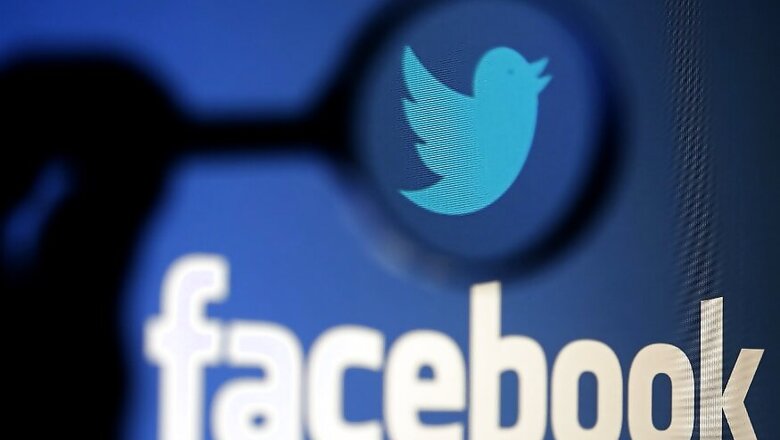
views
Washington: Twitter said on Wednesday it would stop accepting political advertising globally on its platform, responding to growing concerns over misinformation from politicians on social media.
Chief executive Jack Dorsey tweeted that while internet advertising "is incredibly powerful and very effective for commercial advertisers, that power brings significant risks to politics, where it can be used to influence votes to affect the lives of millions".
The move comes with Facebook under pressure to apply fact-checking to politicians running ads with debunked claims.
Dorsey said the new policy, details of which will be unveiled next month and enforced from November 22, would ban ads on political issues as well as from candidates. "We considered stopping only candidate ads, but issue ads present a way to circumvent," he said. "Additionally, it isn't fair for everyone but candidates to buy ads for issues they want to push. So we're stopping these too."
Dorsey said the company took the action to head off potential problems from "machine learning-based optimization of messaging and micro-targeting, unchecked misleading information, and deep fakes."
Twitter's move comes in contrast to the Facebook policy that allows political speech and ads to run without fact-checking on the leading social network.
Facebook CEO Mark Zuckerberg has said political advertising is not a major source of revenue but adds that he believes it is important to allow everyone a "voice," and that banning political ads would favor incumbents.
Dorsey said he disagreed with Zuckerberg's assessment. "We have witnessed many social movements reach massive scale without any political advertising. I trust this will only grow," he added.
Twitter's chief financial officer Ned Segal said the move would have little financial impact. "Since we are getting questions: This decision was based on principle, not money," he said. "As context, we've disclosed that political ad spend for the 2018 US midterms was (less than) $3M."
The Trump Conundrum
Social media platforms have been challenged by President Donald Trump's campaign and its use of ads that contain claims critics say have been debunked by independent fact-checkers.
"Twitter just walked away from hundreds of millions of dollars of potential revenue, a very dumb decision for their stockholders," Trump 2020 campaign manager Brad Parscale said. "Will Twitter also be stopping ads from biased liberal media outlets who will now run unchecked as they buy obvious political content meant to attack Republicans?"
Democrats have stepped up pressure on Facebook to remove political ads, and a group of employees has also called for stronger efforts by the social network to clamp down on "civic misinformation" from politicians.
Outside of the Trump campaign, initial reaction to the Twitter announcement was positive.
"Until privately-owned social media platforms can develop and consistently enforce standards to prevent demonstrably inaccurate information in political advertising, this is the right move," said Michelle Amazeen, a Boston University professor specializing in political communication.
Nina Jankowicz, a Wilson Center fellow specializing in disinformation, also welcomed the decision. "It's great that this move has been made globally and not just within the United States," she said. "Too often these companies operate in a cloud of willful ignorance about the effects their products have outside our borders."
Jankowicz said the decision could level the playing field by preventing wealthier candidates and groups dominating the social conversation. "Paid speech essentially quashes some groups' ability to speak out and be heard because they can't compete with the reach that their richer counterparts pay for," she said.
More cautiously, eMarketer senior analyst Jasmine Enberg said it remained unclear how much impact the change would have, given that political advertising is not a major part of Twitter's core business. "And given the nature of the platform, people, publishers and politicians will still use Twitter to discuss politics organically, meaning that it won't fully solve the problem of misinformation," Enberg said.
Syracuse University professor Jennifer Grygiel also was skeptical, noting in a tweet: "Twitter has promised lots of things in the past that they haven't delivered on. "We have to wait and see how effective the new political policy will be."















Comments
0 comment